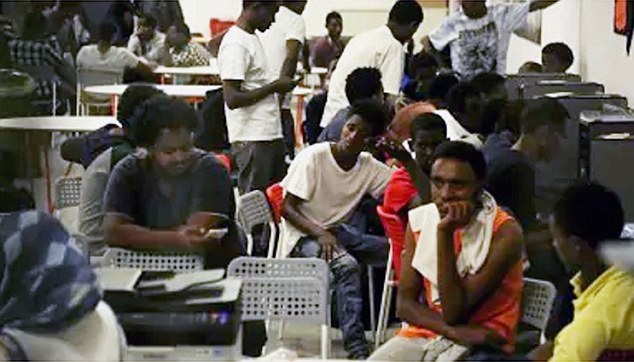19 Terrorists who entered UK on migrant boats now living in hotels funded by British taxpayers
04/12/2023 / By Cassie B.

Nineteen suspected terrorists recently arrived in the UK on small boats across the Dover Strait and are now living in migrant hotels that are being funded by British taxpayers.
According to the Daily Mail, the foreign nationals made their way into the UK illegally last year from northern France and are linked to a range of terrorist groups, including the Islamic state. Most of them have filed asylum claims in the UK and cannot be deported for several reasons, including human rights laws.
The publication reports that seven of the men were already the subjects of an “active investigation” in other countries when they made their way to British shores. Some are under surveillance by the British security service MI5 and counter-terrorism police.
However, the government is not able to remove them due to the potential for them to be subjected to torture or other forms of mistreatment in their home countries.
Of the 19 known terror suspects, five are said to be Iraqi, while five are Iranian, four are from Somalia, four are from Afghanistan and one is from Libya. Five of the seven who are currently under active investigation have been linked to Isis and its offshoots; three of them are Iraqi and two are linked to the Afghani affiliate of Isis known as Islamic State or Khorasan. The last two belong to Iranian terror groups.
Routine fingerprinting helped British security services determine the identities of many of the terrorists, and it is believed that they have evidence against them ranging from intelligence material to overseas convictions.
One security source told the Daily Mail that once these individuals enter the UK, they can monitor them and take steps to minimize any potential threats, but this adds to the country’s surveillance burden.
Migrants arriving by boat are a growing problem in the UK
Asylum seekers are increasingly making their way across the channel in small boats. Those who do not manage to land on their own on beaches are rescued by British authorities and transported to Dover for processing. Last year, a record-setting 45,476 individuals made it across, which was a significant jump over the 28,526 individuals recorded in 2021. The figure for 2020 was just above 8,000, while 2019 and 2018 saw 1,843 and 299 individuals respectively.
Brits were already concerned about the fact that hundreds of criminals have been identified among the arriving migrants from France, prompting some to question the government’s ability to protect citizens. Now, however, it appears that the problem is even more serious than originally believed and the system is deeply flawed.
It’s important to note that known terrorists who enter the country via legal means, such as scheduled flights, would be stopped at immigration control and refused entry to the UK for reasons of national security. However, the same terrorist can arrive to the UK in a small migrant boat across the channel and cannot be denied entry. International refugee conventions and human rights laws dictate that they must be granted an opportunity to claim a right to live in the UK indefinitely.
Adding insult to injury, taxpayers have to foot their bill for full board in hotels for months on end. The average nightly cost is £150, which means that each suspect costs taxpayers around £4,500 per month.
Moreover, many of them cannot be criminally prosecuted because evidence against them stems from intelligence materials, which can’t be used in court.
New legislation in Parliament seeks to give the Home Secretary the power to detain “irregular” arrivals like migrants coming in on small boats and reduce their ability to lodge human rights challenges. It also seeks to give the Home Office the power to send failed applicants to other safe countries such as Rwanda. However, it is facing some opposition from Labour and other opposition parties in the UK.
Sources for this article include:
Submit a correction >>
Tagged Under:
big government, border security, British intelligence, Dangerous, government debt, Immigration, insanity, ISIS, migrant boats, migrants, national debt, national security, Open Borders, taxpayer money, terrorism, terrorists
This article may contain statements that reflect the opinion of the author
RECENT NEWS & ARTICLES
COPYRIGHT © 2017 NATIONAL SECURITY NEWS




















